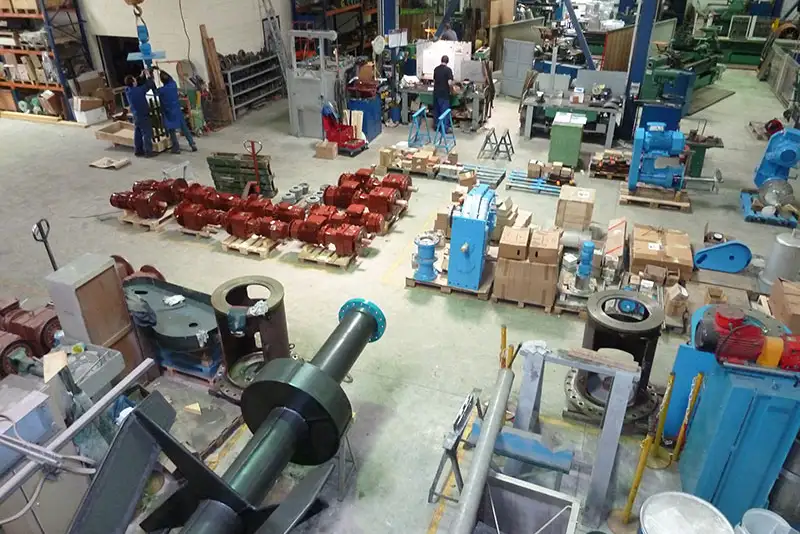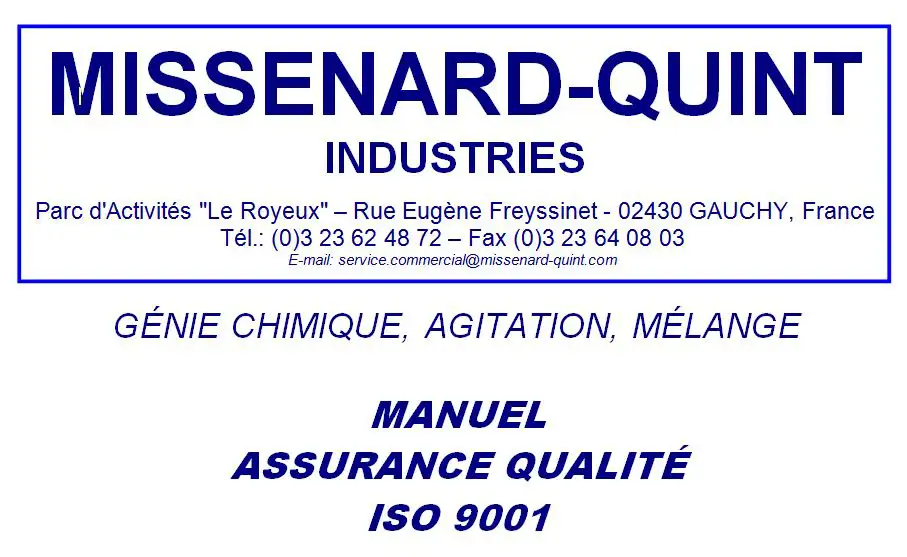Missenard Quint Industries
Pioneers in industrial mixing, renowned for our know-how and professionalism
Missenard Quint key dates
- 1845 Creation of the Missenard-Quint foundry
- 1933 Filing of the first industrial mixing patent by Joseph Quint
- 1933 Creation of two businesses: industrial agitation and installation of radiators (and by extension heating systems).
- 1949 Move to Chemical Engineering (Agitation)
- 1977 Creation of Missenard Quint Industries (Chemical Engineering Agitation).
Our family company is proud of its values and technical know-how, which is enriched whenever possible through cooperation and dialogue with universities and French Grandes Ecoles.
Located in France and operating all over the world
Our factory and offices are located in Gauchy in the Aisne department, on a single site, designed to facilitate reception and shipping. The proximity of the production plant and the design offices promotes synergy between our teams.
Hundreds of Missenard Quint industrial mixers are in operation around the world. We work with a team of technical sales people in France and Belgium and a network of agents abroad, namely in Russia, Morocco, Egypt, Korea, Tunisia, Israel, etc.
Over the years, the company has developed renowned know-how in the manufacture of new equipment and associated services.
A quality system recognised by our customers
Since 1978, companies operating in the nuclear industry have renewed their confidence in us.
Our quality system, implemented by the General Management, is recognised and audited successfully by our customers. Our organisation guarantees coordination between our various services and fluidity of relations with our customers and suppliers.
The Missenard Quint Industries Quality Assurance Manual sets out:
- the Quality goals in accordance with company policy
- the corporate organisation
- the role and responsibility of each position and department
- the applicable rules and documents in the company in terms of quality management.
We maintain and update our quality system as and when standards are revised, based on customer audits and feedback.



